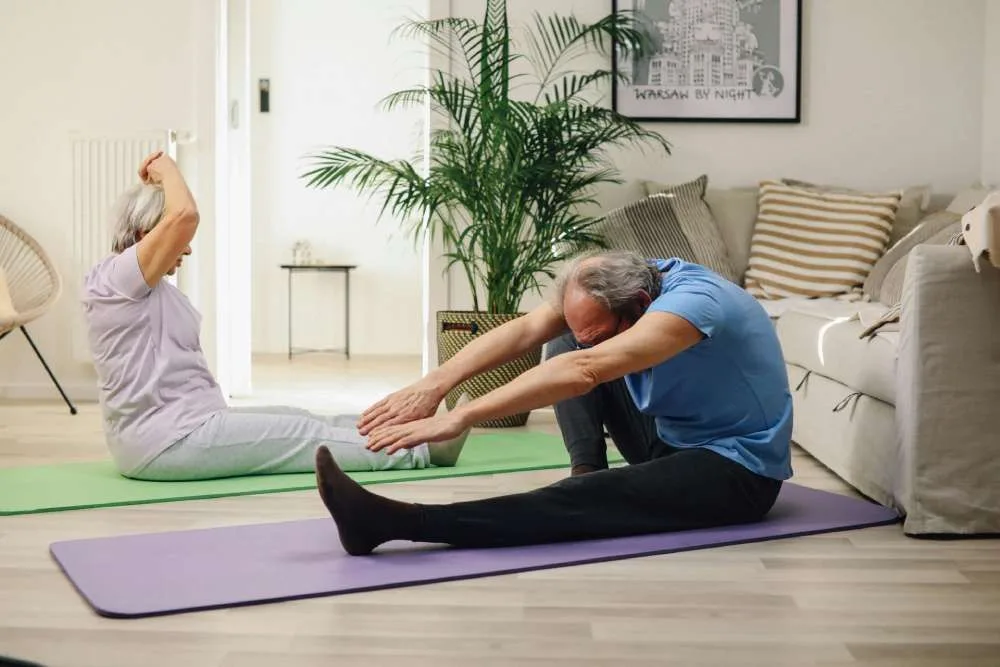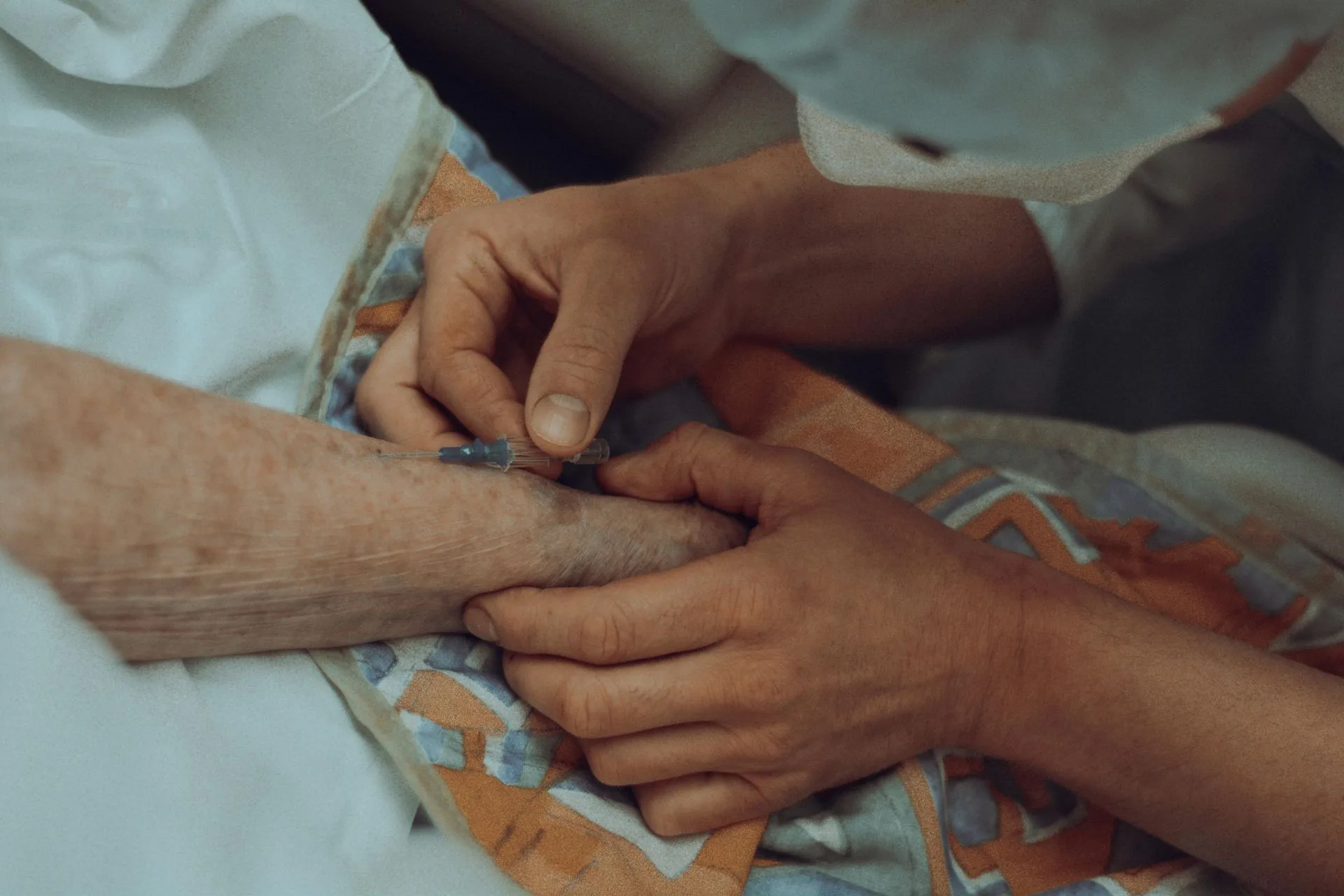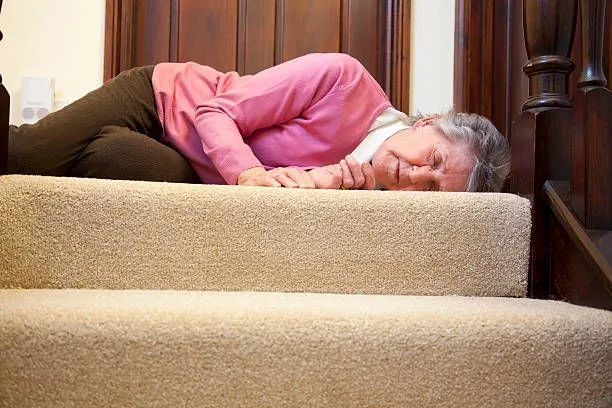Essential Elderly Slip and Fall Prevention Tips
Why are seniors more prone to falling?
As we age, our bodies undergo changes that affect balance, strength, and coordination. Add to that common medical conditions like arthritis or poor vision. Hence, it’s easy to understand why slips and falls become a bigger concern.
Our homes, where we spend most of our time, can also be full of hazards. Loose rugs, uneven flooring, and cluttered pathways can increase the chances of a fall. It’s important to recognize these risks so we can take steps to address them. By being proactive, we can make a huge difference in preventing accidents.
In fact, falls are the leading cause of injury-related deaths among older adults. Over three million seniors are treated for falls each year. This is why understanding and addressing these risks should be the top priority.
Related blog: First Aid Basics Everyone Should Know
Home Safety Modifications for Seniors
Making a home safer doesn’t have to be complicated or expensive. A few simple changes can significantly reduce the chances of a slip or fall:
- Install grab bars in the bathroom, particularly near the toilet and shower, where slips are most likely to occur. These bars offer extra support and stability when moving around.
- Secure loose rugs with double-sided tape or anti-slip pads to prevent tripping.
- Use non-slip mats in the bathroom and kitchen, where water often makes floors slippery.
- Improve lighting throughout the home. Ensure staircases, hallways, and entrances are well-lit, and add nightlights in bedrooms and bathrooms.
- Clear walkways by removing clutter, shoes, and cords that could cause someone to trip.
These simple modifications can transform your home into a safer space for seniors.
Effective Exercises to Improve Balance in Older Adults
Staying active is one of the best ways to prevent slips and falls. When you engage in regular physical activity, you help maintain balance, strength, and flexibility. This makes it easier to catch yourself if you start to slip, reducing the chances of a fall.
Consider incorporating exercises like:
- Tai Chi: Great for improving balance and coordination.
- Strength training: Using light weights helps build muscle and provides support.
- Daily walks: Even a short walk around the neighborhood can boost mobility and confidence.
It’s never too late to start exercising, and the benefits are well worth the effort.

Footwear and Clothing
The type of shoes you wear plays a major role in fall prevention. Shoes with non-slip soles provide much better grip and stability, especially on smooth or wet surfaces. It’s also important that shoes fit properly—avoid anything too loose or worn out.
At home, it’s tempting to walk around in slippers or just socks, but these can be slippery. If you prefer not to wear shoes indoors, consider using non-slip socks. Clothing can also be a factor; try to wear clothes that fit well and don’t drag on the ground to avoid tripping.
Nutrition and Hydration
What you eat and drink can impact your ability to prevent falls. A balanced diet rich in calcium and vitamin D helps keep bones strong, reducing the risk of fractures if a fall does happen. Include:
- Calcium-rich foods like dairy products, leafy greens, and fortified cereals.
- Vitamin D sources such as salmon, egg yolks, and fortified milk.
Staying hydrated is just as important. Dehydration can cause dizziness, making you more likely to lose your balance. Aim to drink at least eight glasses of water a day, even if you don’t feel thirsty. These dietary habits contribute significantly to overall health and stability.
Read this next: Nutrition and Healthy Eating Tips for National Nutrition Month
Regular Health Assessments

Routine check-ups with your healthcare provider are a key part of fall prevention.
Regular eye exams ensure you have the right prescription glasses, which can greatly improve your ability to navigate your surroundings. Hearing tests are also important since hearing issues can affect your balance.
It’s wise to have your doctor review your medications as well. Some prescriptions can cause dizziness or drowsiness, which might increase the risk of falling. If you notice any side effects, talk to your doctor about adjusting the dosage or switching to a different medication. It’s all about staying vigilant and addressing potential issues before they lead to accidents.
Emergency Preparedness
Even with the best precautions, accidents like slips and falls can still happen. That’s why being prepared is crucial.
- Keep a list of emergency contacts in a visible spot, like on the refrigerator or near the phone.
- Invest in a medical alert system for quick access to help in case of a fall.
- Learn how to fall safely. If you do lose your balance, try to roll or fall onto a softer surface, and protect your head.
By preparing for emergencies, you can reduce the severity of injuries and get help faster.
Involving Family Members and Caregivers
Preventing falls isn’t just the responsibility of the senior; family members and caregivers play a crucial role too.
Regularly check the home for hazards, encourage physical activity, and monitor any changes in health or mobility. If you notice a loved one becoming unsteady or experiencing frequent falls, address it immediately. Sometimes, an outside perspective can identify risks that might be overlooked.
The Long-Term Benefits of Staying Active
Staying active not only helps prevent falls but also contributes to overall well-being.
Physical activity improves balance, strengthens muscles, and boosts confidence, making seniors feel more secure in their daily movements. Active seniors tend to experience fewer falls, and even if a fall does occur, they’re often better equipped to handle it.
What to Do In Case of Simple Injuries like Sprains
If you experience a sprain from a slip or fall, it’s important to seek care immediately.
Urgent care clinics can provide fast, effective treatment without the long wait of an emergency room. At UrgiClinic Urgent Care , we offer streamlined assistance like X-rays and rapid laboratory tests so you can get the care you need without the hassle of a hospital visit. No need to head to the ER—our team is ready to help you recover quickly and comfortably.
You might also like: Finding Immediate Medical Help: Your Ultimate Guid e to Locating the Best Urge nt Care Near You
Get Assessed Today
Preventing slips, trips, and falls is so important for keeping seniors safe, independent, and living their best lives. A few simple changes at home, staying active, wearing the right shoes, and eating well—can make all the difference.
If you or a loved one needs urgent or acute care, check in now for a prompt assessment. We’re here to address immediate health concerns and help you get back on track quickly.




